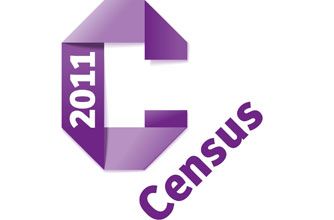2011 Census – all you need to know
Everything you need to know about your 2011 Census form and what you have to do

Has a purple and white envelope dropped onto your doormat over the last few weeks? Here's everything you need to know about the 2011 Census and what you have to do.
What's a census? A census is basically a count of all people and households that takes place every 10 years. Information is gathered from each form on every household in the UK.
Why do we need a census? The information gathered from the census is used to help local authorities, councils etc in the UK to plan for the future for school places, housing, roads, emergency, health and transport services and lots of other local services. For example, there's no point ear-marking money for new nurseries in an area with a mainly retired population. It allows local services to focus resources where they are needed most.
Who's running the census? The Office for National Statistics.
What do I have to do? Fill in your questionnaire either on the paper form you've been sent, or online, before, on or as soon as possible after 27 March 2011. Your answers should refer to that date.
How long will it take? It should take around 10 minutes for each person.
Do I have to fill in my questionnaire? Yes, every householder must, by law, fill in and return a 2011 Census questionnaire.
GoodtoKnow Newsletter
Parenting advice, hot topics, best buys and family finance tips delivered straight to your inbox.
What if I don't fill it in? You could face prosecution, a hefty fine (up to £1,000) and a criminal record.
Why do they need to know about population? Some areas are alot more populated than others and knowing where populations are concentrated gives the Government a more accurate way of allocating grants and helps them to plan services.
Why do they need to know my age and about my health? This information is needed to effectively plan health and social services and to allocate money where it's needed most.
Why do they need to know about where I live? Information on housing and how many people live in each house can highlight areas where there is inadequate or poor housing, indicating a need for new housing.
Why do they need to know about my job? The census will show how many people work in different industries and will help the Government plan jobs and training policies.
Why do they need to know about what transport I use? This information gives an up to date picture of how many cars are used and how much pressure public transport is under in each area. This will contribute to the future planning of roads and public transport.
Why do they need to know about my ethnic group? This information helps measure the success of equal opportunities policies. It also helps central and local government allocate money and plan programmes to take into account the needs of minority groups.
What happens to my questionnaire after I've filled it in? If you've filled in the paper form it arrives at the processing site where it's scanned and the paper part will be destroyed. If you've filled it in online the information is processed electronically. With either method your answers will be converted into numerical date and processed into statistics.
Will anyone know what I've put on the form? No, all names and identifying information are removed so you can't be identified from published statistics. Images of the actual questionnaires are stored on microfilm. This will become part of the archive of public records. The information will be kept confidential for 100 years in England and Wales.
Who can use the statistics? Statistics are made available for use by the Government, businesses, charities, academics and the public to understand our population and plan for the future.
Where to next? - How to get Olympics tickets - Loads of money-saving ideas - Family days out - ideas, vouchers and more!